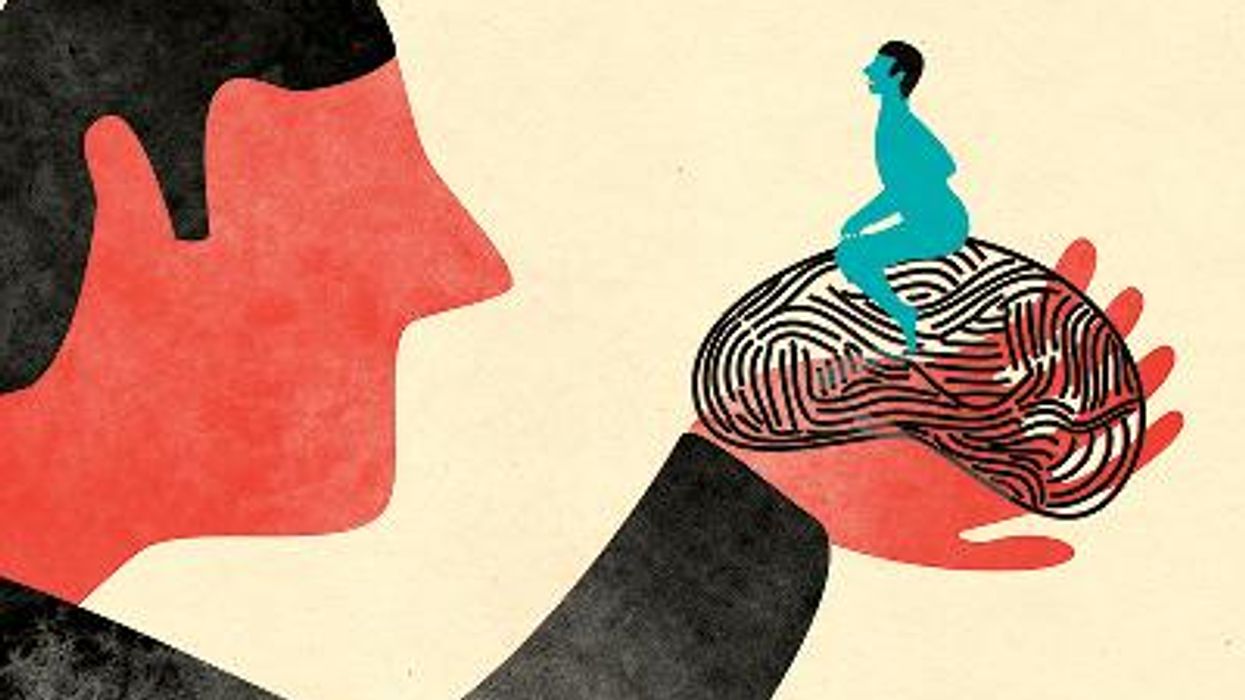Whether 37,000-year-old cave paintings of female anatomy qualify as porn is debatable -- porn is defined in a cultural context. Nevertheless, as a species we've appreciated erotic imagery since our earliest days.
But in the two decades since the Internet moved inextricably into our daily lives, it has brought nearly unfettered access to an essentially infinite amount of sexually explicit material. A study published last year by the University of East London indicated that almost 80% of boys had seen people having sex by age of 16, and some estimates put the volume of Internet traffic devoted in one way or another to sex as high as 50%. Despite porn's ubiquity, there has been very little research into what effect it has on human brain structure and function.
Perhaps the only exception to this glaring absence, a study published earlier this year in the peer-reviewed medical journal JAMA Psychology, generated headlines -- The Telegraph's "Watching Pornography Damages Men's Brains," Metro's "Watching Too Much Porn Shrinks Men's Brains and Makes Them Stupid -- Apparently." They were enough to give a man pause before clicking his mouse. Unsurprisingly, they miss the mark.
The study was conducted at the Max Planck Institute for Human Development in Germany and used MRI scans to map the brain structures of 64 men, ages 21-45, who possessed a broad spectrum of pornography consumption habits (from zero to 19.5 hours a week, with the average being about four). Researchers measured the men's reactions to both pornographic and nonpornographic images. They found a correlation between the amount of pornography subjects consumed in a week and smaller volumes of grey matter in a part of the brain associated with motivation and reward processing; less activity in a brain region associated with sexual stimulation; and a decrease in connectivity between the reward center and the region of the brain integral to setting and achieving goals.
The researchers believe that, taken together, the data support their theory that "pornography exposure might lead to wearing and down regulation of the underlying brain structure, as well as function, and a higher need for external stimulation of the reward system and a tendency to search for novel and more extreme sexual material." In other words, regular porn consumption creates a negative spiral in which more novel and extreme images are required to achieve the same results.
But don't throw away that dirty DVD collection just yet.
The researchers presented a solid theory that elegantly explains their findings and fits neatly with existing models of brain architecture. But this study can't tell us whether watching porn causes changes in the regions of the brain involved in sex and motivation, or whether some individuals are born with brains prewired to need extreme reward and sexual stimulation, driving them to watch more porn.
Though the data do indicate a connection between porn consumption and grey matter volume, it isn't very strong. On a scale of zero to one, the correlation ratio for porn hours and smaller grey matter clocks in at an inconclusive 0.432. Furthermore, the study recruited relatively few men (64, hardly representative) and relied on the subjects to self-report their porn consumption habits -- a notoriously unreliable method of data collection when it comes to questions about sex.
More studies will be required if we want to fully understand the long-term effects of sexually explicit material on the human brain. Until that day comes, practice moderation; nothing pleasurable in life comes without some kind of cost, so why would we expect porn to be any different?


Charlie Kirk DID say stoning gay people was the 'perfect law' — and these other heinous quotes